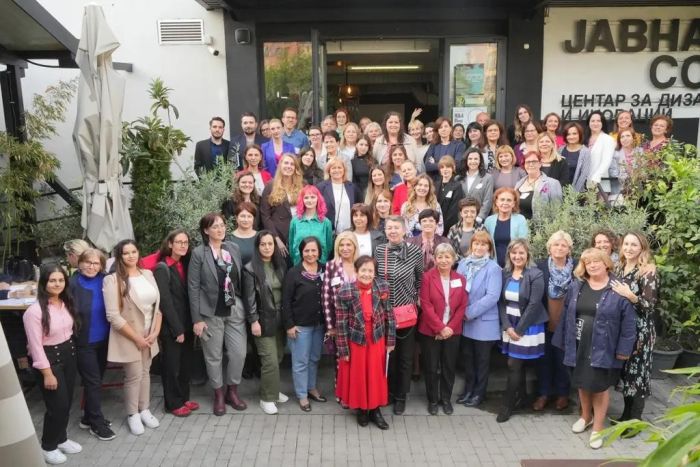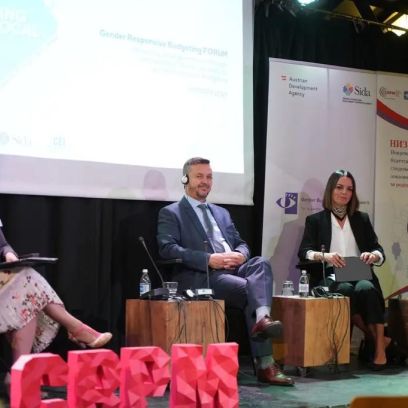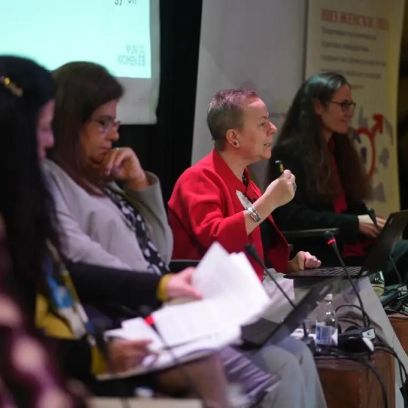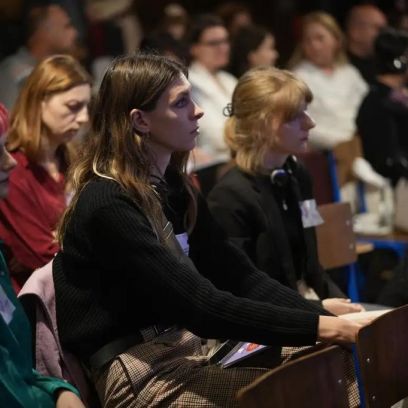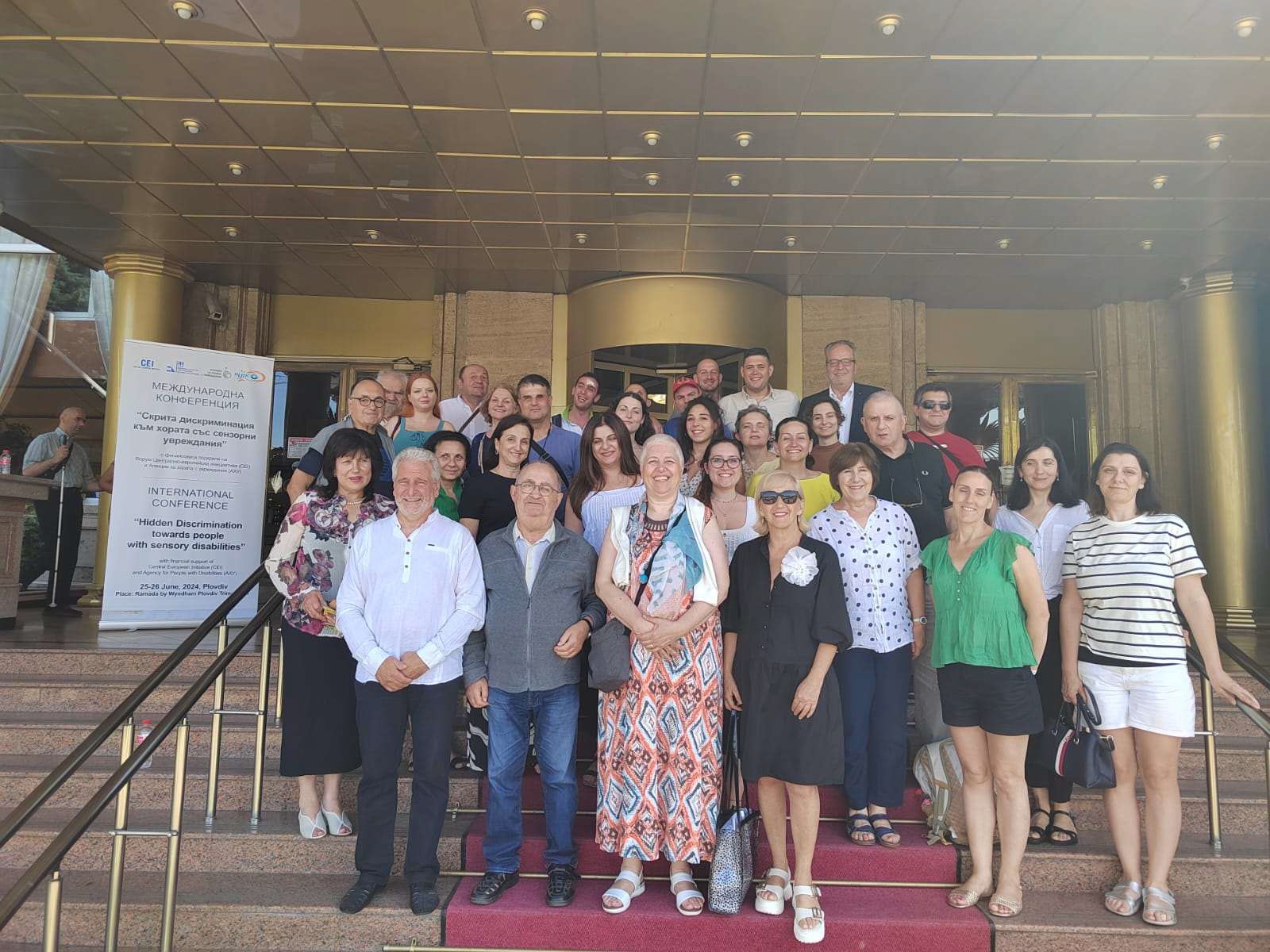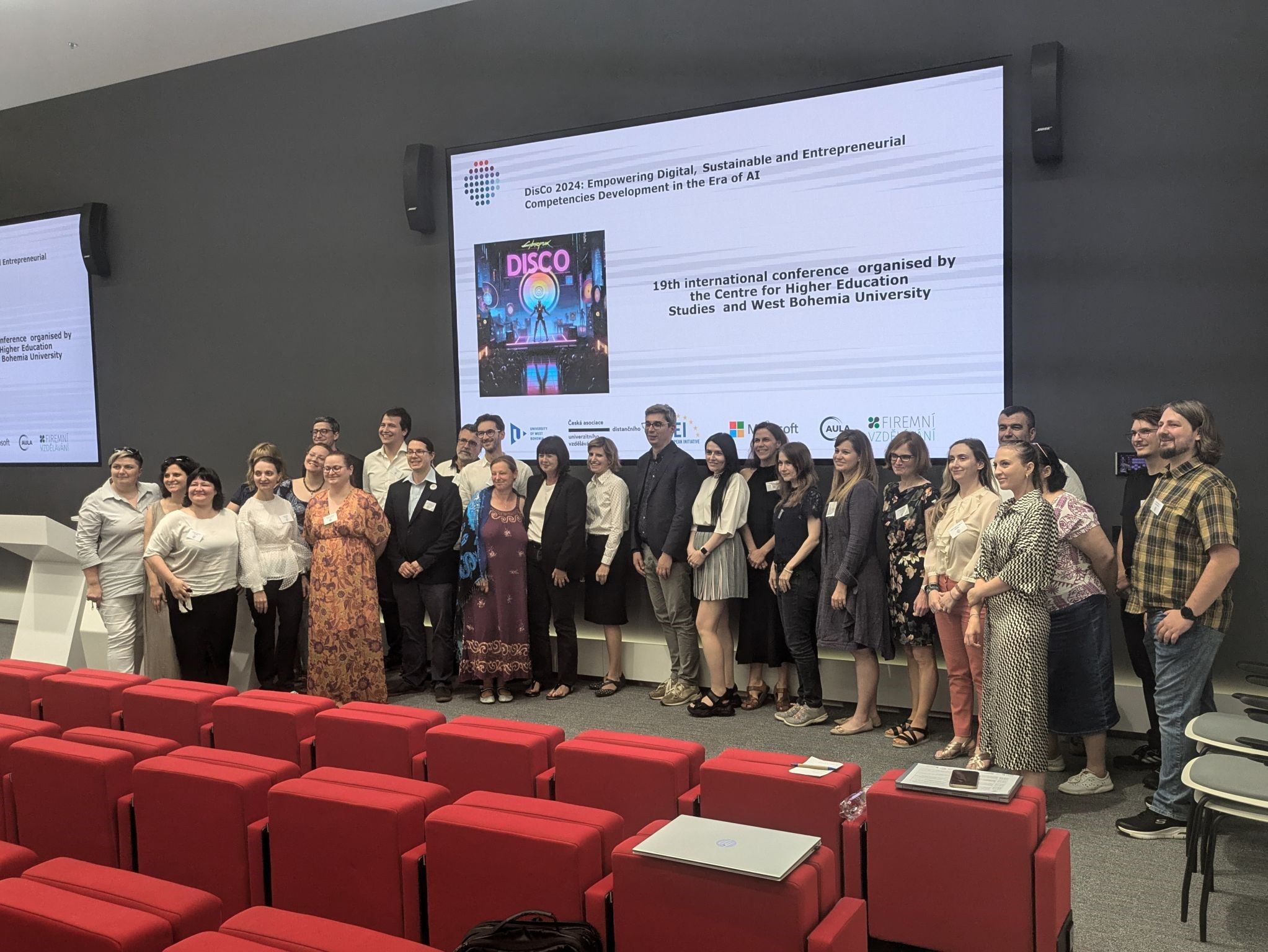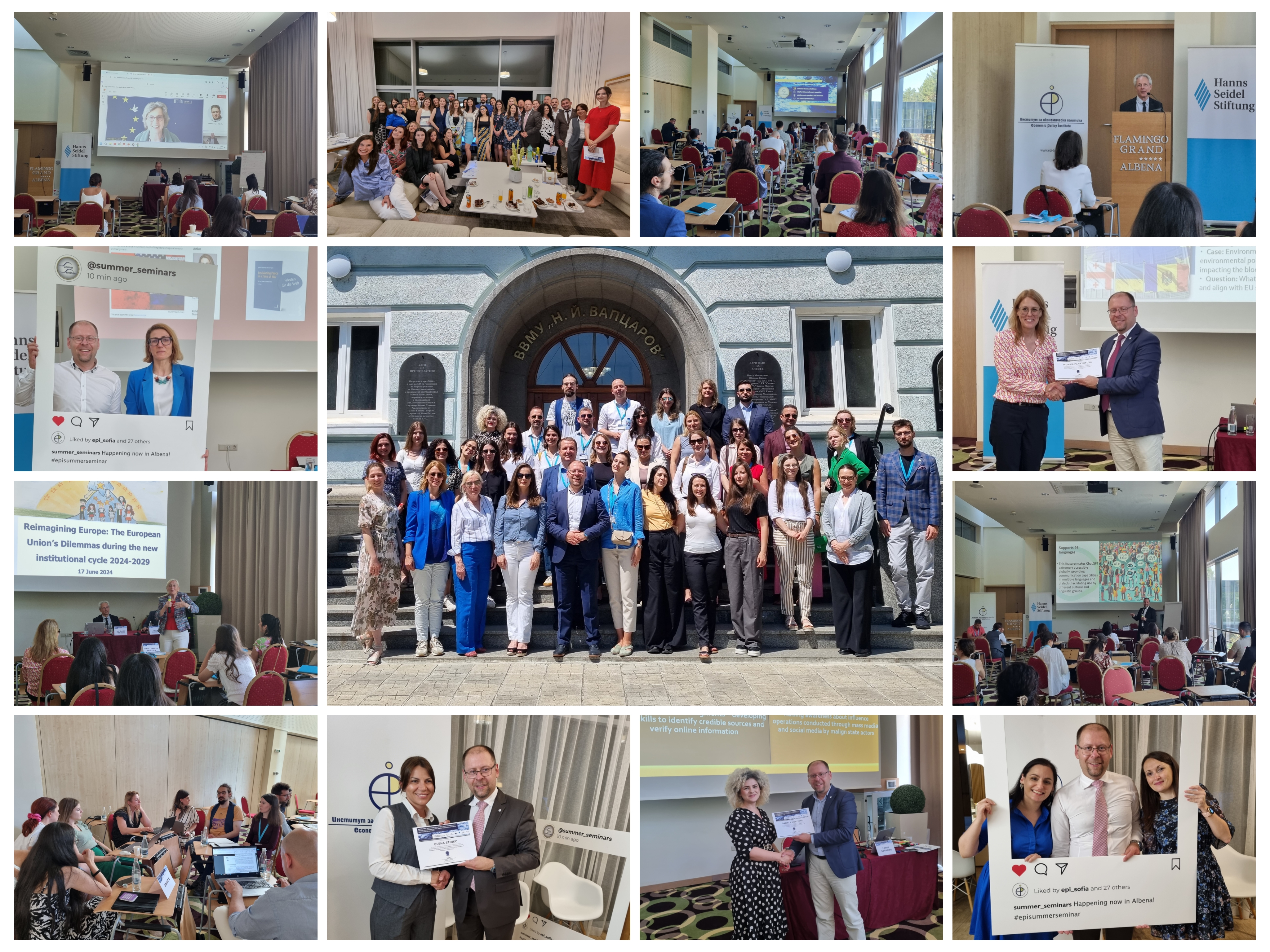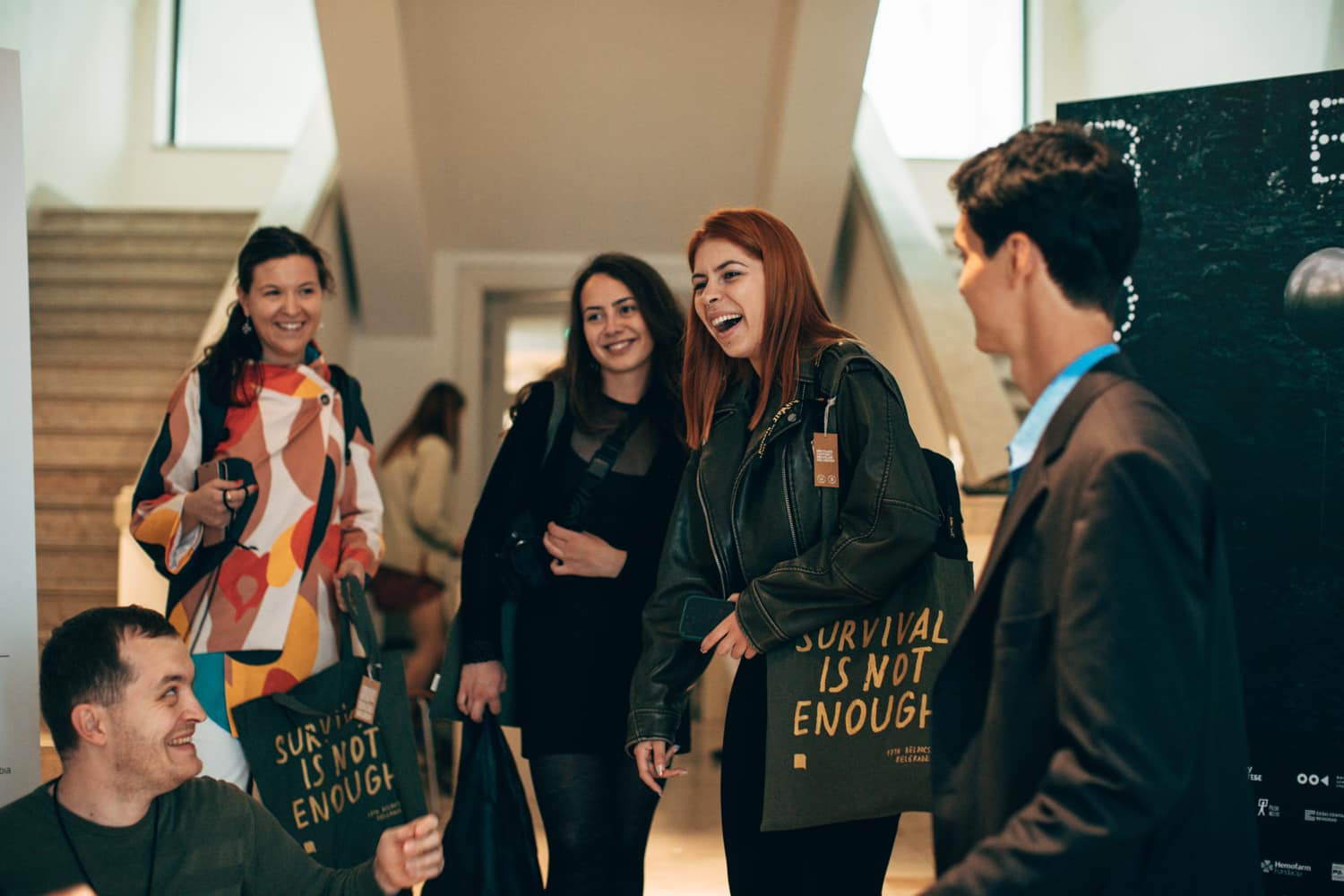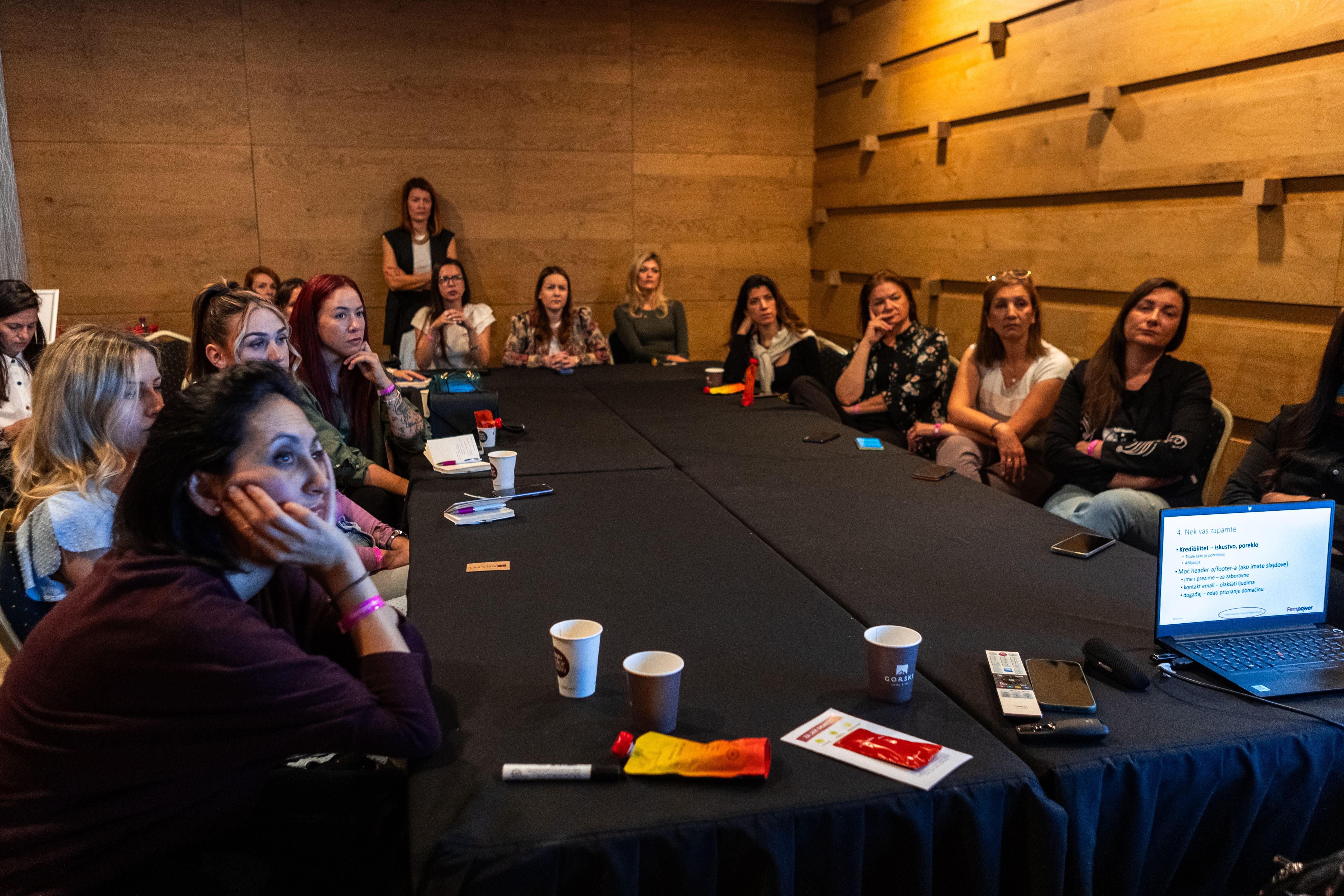90 representatives from international organisations, NGOs, government representatives and other stakeholders from the region gathered in Skopje (North Macedonia) on 19-20 October for a two-day Gender Responsive Budgeting FORUM – “Going Glocal: Gender Responsive Budgeting in the Western Balkans & Moldova: advancing good governance through empowering CSOs to use GRB tools”.
The event was opened by Enver Husein, Deputy Minister of Labor and Social Policy of the Republic of North Macedonia, who pointed out the activities undertaken by the Government of his country to include gender equality and thus gender-responsive budgeting into strategic planning; Marija Risteska, Regional Director of the Gender Responsive Budgeting Network, who underlined the international community’s role in the promotion of gender equality and in particular Gender Responsive Budgeting (GRB), through development aid. She also stressed the importance of dialogue between governments and civil society organisations in shaping recommendations and monitoring practices; and by Lidija Arsova, Liaison with Member States & dealing with External Relations at the CEI Executive Secretariat, who emphasised the significance of regional cooperation in addressing complex challenges which exacerbate disparities especially for women and that, therefore, the CEI was committed to promoting good governance and gender equality by placing these two objectives high on its agenda. She explained that this was to be achieved through exchanging experiences and good practices, and offering solutions, such as the GRB tool.
Good governance and strong institutional capacity are a necessary condition for European integration...the CEI promotes activities to help improve governance by strengthening the quality and capacity of public institutions to undertake policy reforms, as well as promote the private sector and inclusion of diverse actors of society.
Discussions referred to the development aid provided by the international community and the current methodologies for monitoring funding for gender equality. The strengths, weaknesses and opportunities for improvement of the gender markers used by the OECD, the EU, UN agencies and IFIs were also touched upon. Attention was also paid to the development of methodological ideas for gender-responsive budgeting for better information on climate-change mitigation and adaptation activities, as well as to the importance of including gender equality in policies and budgeting for national, regional and local development.
It was concluded that changes can be achieved only through joint efforts and advocacy. Implementing gender-responsive budgeting from central to local level, directly to citizens is needed, which is still a challenge that needs to be worked on. It was also concluded that it was necessary for all involved parties to advocate for transparent data in relation to gender equality, especially in the context of gender-responsive budgeting.
The event was supported by the EU, the Austrian Development Agency (ADA), the Swedish International Development Cooperation Agency (SIDA), and the Central European Initiative - CEI.

